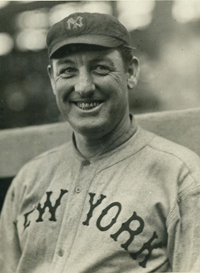Panoramic Photo Above:
Historic Fenway Park

Baseball History Comes Alive Now Ranked As a Top Five Website by Feedspot Among All Baseball History Websites and Blogs!
(Check out Feedspot's list of the Top 35 Baseball History websites and blogs)
Guest Submissions from Our Readers Always Welcome! Click for details
Visit the Baseball History Comes Alive Home Page
Subscribe to Baseball History Comes Alive
Free Bonus for Subscribing:
Gary’s Handy Dandy World Series Reference Guide
We all know ball players are superstitious, but today, Ron Christensen tells us about possibly the most superstitious player of all, “Wild Bill” Donovan. He’s off the “superstition charts!” It’s a great story that all baseball history fans will enjoy. -GL
“WILD BILL” DONOVAN:
THE MOST SUPERSTITIOUS MAN IN BASEBALL!
So many parents tell their kids how great they are. When [my kid] didn’t make the team, I told him he had to get better. -“Wild Bill” Donovan
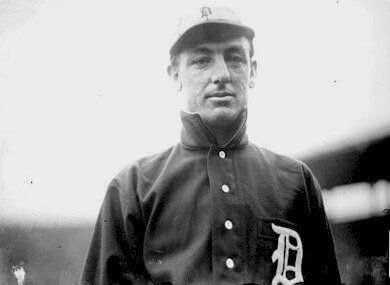
I’m not only a fan of baseball history, but a fan of history in general. If asked about Wild Bill Donovan, I would say he was a decorated American general and the architect of the CIA’s WWII predecessor, the OSS, earning him the title, ‘The Father of American Covert Intelligence’. But as far as I know, he didn’t play baseball. That would be another Wild Bill Donovan, one remembered as much for his superstitious proclivities as his pitching acumen. While many athletes have some tendency toward superstition – think of baseball players who routinely step over the chalk line when coming on and off the field – this Wild Bill Donovan took superstition to a whole new level on a baseball diamond, so much so that I sometimes think it was he that Stevie Wonder was singing about in his 1972 hit song, ‘Superstition’ (he wasn’t, so no citations to support this).
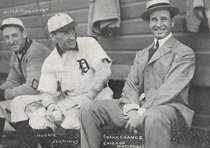
Bill Donovan made his National League debut with the Washington Senators at the start of the 1898 season. Only 21 years old, Donovan split time in the outfield and on the pitcher’s mound, enjoying little success at either position. In 39 games, he batted a meager .165, and on the mound achieved the unremarkable record of 1win and 6 losses. Even worse, he walked 69 batters in 88 innings. Donovan not only walked batters, he also hit them on occasion too. After one appearance, a newspaper reporter wrote with mock-surprise that, “’ Wild Bill’ Donovan went to the slab and finished the game without killing a soul.” And just like that, Bill Donovan’s nickname ‘Wild Bill’ was born.
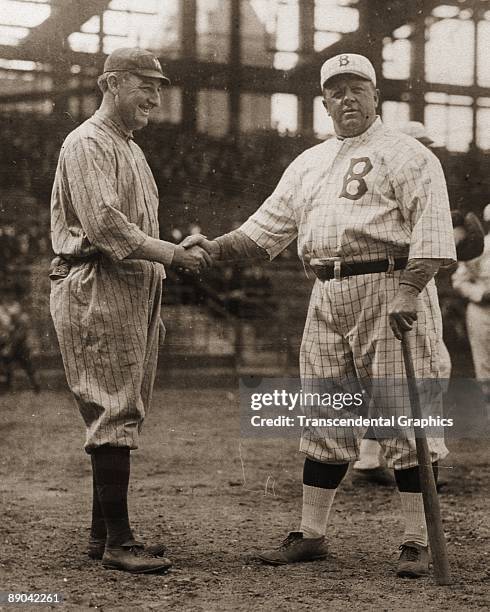
Donovan’s fortunes would improve, and though the moniker ‘Wild Bill’ would remain, he would come to be known as a control pitcher. Umpire Billy Evans later wrote that the nickname was somewhat ironic because control came to be Donovan’s greatest asset as a pitcher. But the nickname held its place, and Donovan often used it to his advantage, purposely firing off an occasional wild pitch to keep batters off-balance and fearful of being hit.
In a career that spanned 18 major league seasons, Donovan compiled a won-loss record of 186-139 with a 2.69 ERA over 378 games and 2,964.2 innings pitched. He threw 289 complete games and helped lead the Detroit Tigers to three consecutive American League pennants in 1907-1909. Donovan won 25 games twice in his career – first with the National League Brooklyn Superbas in 1901, and again with the American League Detroit Tigers in 1907. He pitched well in World Series appearances, but was never a part of a championship-winning team.
And Bill Donovan had an odd and rather superstitious approach to pitching. He believed that it was bad luck to strike out the first batter he faced in a game. And if striking out that batter seemed easily accomplished, Donovan would ease up to encourage the batter to hit the ball, or would throw outside the strike zone to issue the batter a walk. He might even hit the first batter, thus avoiding the strikeout and keeping the rest of the lineup ill at ease.
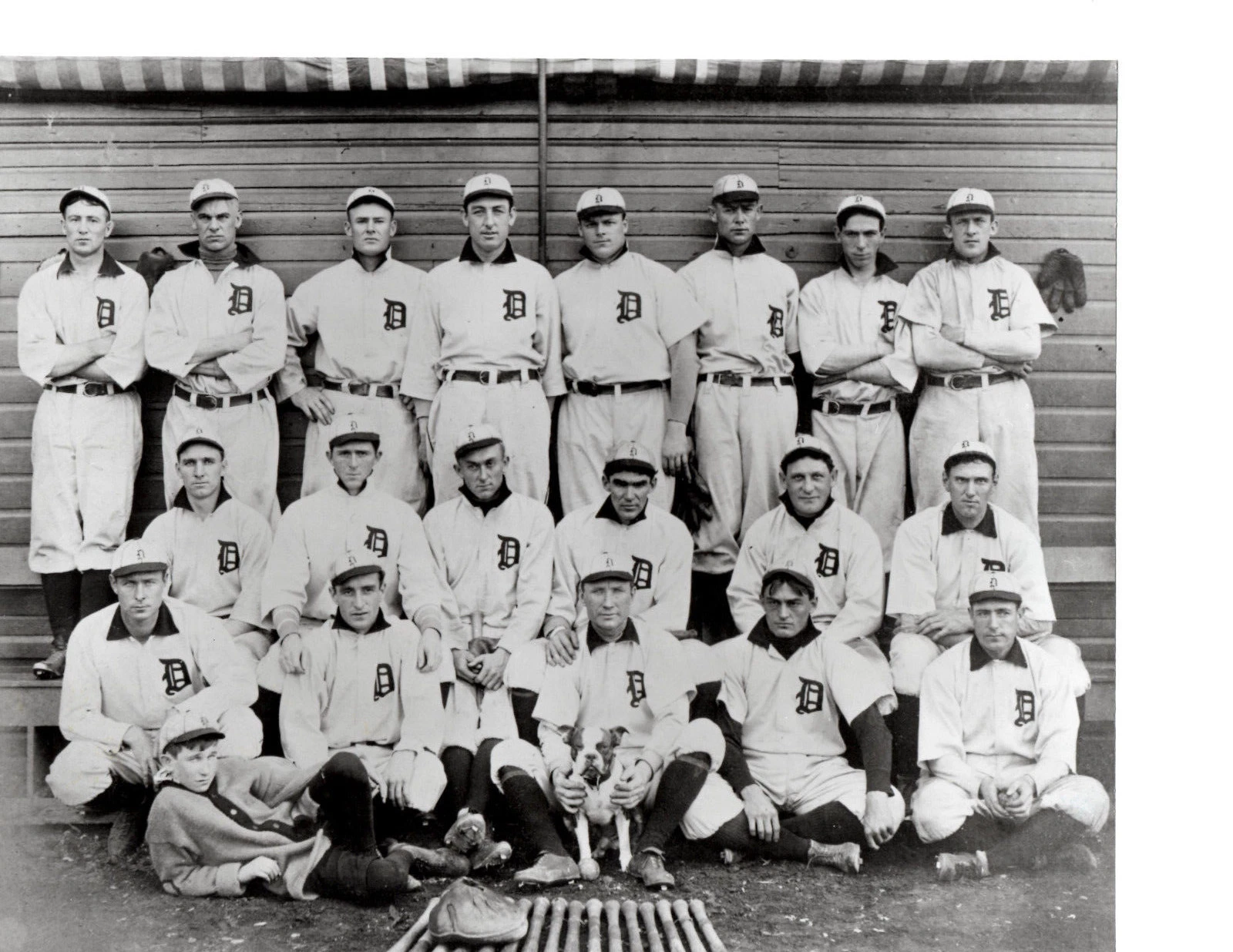
Donovan also believed it was bad luck to pitch a shutout in his first game of the season. Umpire Billy Evans once said, “Donovan has a dread of working in shutout games on his first appearance. He believes it’s a season hoodoo and would do almost anything to prevent it.” Evans was behind the plate for Donovan’s first game in 1907. Donovan, a curveball (or slant ball) specialist, had a large lead and a shutout going for him after eight innings. He appeared uneasy entering the ninth, and offered nothing but straight fastballs to the first few hitters he faced. He induced a walk and an error, and gave up a hit that scored a couple of runs.
Donovan seemed relieved and relaxed once the runs had scored, regaining his composure and returning to form to complete the inning without further trouble. After the game, Evans asked Donovan what had gone wrong in his one bad inning, saying he noticed Donovan seemed to let up in the ninth. Donovan replied, “I have no desire to win a shutout game right off the reel. Shutouts on your debut are not lucky.” Rather than being annoyed at blowing the shutout, Evans noted that Donovan seemed pleased with himself for doing so.
Bill Donovan also enjoyed a coaching and managerial career that extended beyond his playing days. At various times, Donovan managed the Providence Grays, New York Yankees, Detroit Tigers, and Philadelphia Phillies. His final stint as manager was in 1923 with the New Haven Profs of the Eastern League, a team co-owned by Donovan’s friend and former teammate, Ty Cobb.
Tragically, Donovan was killed in a train accident in December 1923 while on his way to Chicago to attend the annual baseball winter meetings. Accompanying Donovan were George Weiss, co-owner along with Cobb of the New Haven Profs and later a front office executive with the New York Yankees, National League President John Heydler, National League Executive Cullen Cain, and William Baker, owner of the Philadelphia Phillies. Of them, only Donovan (along with eight other passengers) lost his life in the accident.
Ron Christensen
REFERENCES:
- Wikipedia, Bill Donovan
- SABR: Bill Donovan, by Doug Skipper
- Baseball Reference, Bill Donovan
- gov: The Legend of Wild Bill Donovan
- com: The Washington Times
- Tiger Tales Blog: Top Forty Tigers Starting Pitchers, by Lee Panas
- Baseball History Daily: Umpire Billy Evans
- Reddit: Baseball History – Bill Donovan, posted by sonofobutch
Photo Credits: All from Google search
Subscribe to Baseball History Comes Alive. FREE BONUS for subscribing: Gary’s Handy Dandy World Series Reference Guide. https://wp.me/P7a04E-2he

